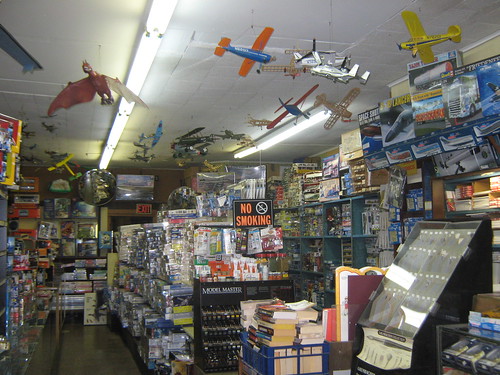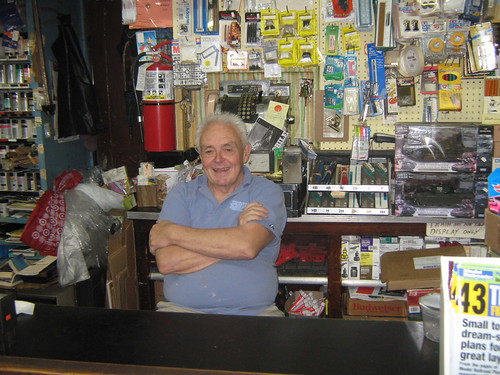With the economy in a tailspin, businesses everywhere are trying to find ways to increase revenue – even if it means relocating their entire operation. Small-business owner Marvin Cochran is the exception.
For the past five years, Cochran and his “Rudy’s Hobby and Art Supply” store have experienced a steady 10 percent decline in revenue. Still, he remains open.
“This isn’t really something you do to make a living anymore – I’m doing it to keep myself occupied as much as anything,” said Cochran, whose property is located on 36th street and 30th avenue in Astoria. “I’m able to pay my bills with the business. I own the space; otherwise I wouldn’t be able to afford the rent here. We have no reason to sell it, it’s carrying its own weight.”
Cochran, 74, inherited the property from his in-laws in 1964. At the time, the space was an ice-cream shop named after his father-in-law Rudy. He took over the business and kept the name in his honor. In 1993, facing declining revenue and expensive renovations, Cochran made the decision to remodel the ice-cream shop into a hobby store. An avid collector of models, Cochran began selling model trains, planes and the art supplies necessary to build new models and restore older ones.
“There have been good times and there have been bad times,” added Cochran, who runs the store four days a week by himself. “This is a business where people are spending their extra money,” he said, adding “but [today] they don’t have extra money.”
Optimism amongst all small-business owners has been on steady decline for six months, according to the National Federation of Independent Businesses (NFIB). In their monthly survey, NFIB reported “sales remain the largest problem for small firms.”
Only 12 percent of all small-business owners expected to exceed their quarterly projections, according to the report. Owners remain pessimistic about the economy’s ability to recover over the next six months.
“When people are uncertain about the future or fear it, they don’t spend or invest,” said William Dunkelberg, NFIB’s chief economist. “The biggest problem continues to be a shortage of customers.”
Cochran says that on a good day, he can get up to 30 customers stopping by his hobby store. Some buy the smaller ticket items like toy cars and tiny airplanes, which sell for $2 each. On really good days – usually about once or twice a month – an avid collector enters his shop and buys the bigger model trains and planes, which can run anywhere from $200 to $500.
“The younger generation isn’t into it, and the older generation is dying off,” said Cochran smiling. “Kids are shopping at video game stores – they don’t know what to do with this stuff.”

PHOTO BY WILLIAM GALLEGO: At "Rudy's Hobby and Art Supply" store, customers can buy an assortment of models ranging from cars and airplanes to entire train sets.
With the holiday season looming, most businesses experience an uptick in revenue. However, Cochran says he is the exception once again. Most customers who venture into his store are simply passing by, rarely shopping for themselves or others.
“The name [Hobby Store] really caught my attention,” said Sarah Salama, a resident of Astoria who lives a few blocks away from Cochran’s shop. “I didn’t buy anything, just mostly looked around.”
Since 2007 – a year before the recession began – the hobby market has seen a 3.3 percent decline in revenue, according to the Hobby Manufacturer’s Association. Their numbers show that in 2010, total revenue from businesses like Cochran’s made about $708 million in the United States. In addition, spending on railroad products dropped 1.4 percent in 2010.
Despite the decline in the hobby market, Cochran has resisted selling the shop because it has been in the family too long. He plans on leaving the shop to his children, who will likely keep the property, but get rid of the business.
In the meantime, “Rudy’s Hobby and Arts Supply” store remains open, serving as a hobby in its own right for its owner.
“I use this as a semi-retirement because I see what it’s like to be fully retired,” said Cochran. “When I’m no longer physically able to [run the shop], then I’ll be fully retired.”

